What Did You Read in October 2025?
I don’t think it will happen, but 2025 could be the first year that the books I’ve read outnumber the movies I’ve seen. It may be close. Stay tuned.
October was a good reading month including (of course) some horror, crime fiction, a classic, and a lot of nonfiction. Here we go:
Not Pictured Fiction
Untitled (2025) ???
This is a novel in manuscript written by a good friend. It has a title, but I don’t want to reveal it without his permission and can’t tell you the plot, but I can say it’s a terrific novel with strong elements of supernatural horror. Let’s hope it’s published soon. I’ll keep you posted.
Pictured Fiction
The Golden Spiders (Nero Wolfe #22, 1953) Rex Stout (2x)
In 1988 a lady named Martha Holliday introduced me to the wonders of Rex Stout’s greatest creation, detective Nero Wolfe. I spent the next two years reading all 33 Wolfe novels and 39 novellas/short stories. And then I started over. The Golden Spiders wasn’t the first Wolfe book I read, but it was fairly early. I like it even more now than I did then. A 12-year-old street kid named Pete hires Wolfe to find the woman who stopped her car at a red light, looked at him out the window, and mouthed the words “Call the police.” Wolfe takes the case only to discover that the woman, wearing golden spider earrings, has mysteriously disappeared. Soon, death follows. Then another death. I never tire of reading the adventures of Nero Wolfe and his wise-cracking assistant Archie Goodwin, and this is a good one.
The Buffalo Hunter Hunter (2025) Stephen Graham Jones
I’d heard of Stephen Graham Jones for years, but this is my introduction to his work. Wow… I need to read more from this guy. The current discovery of a Lutheran pastor’s diary from 1912 recounts the clergyman’s encounters with a Blackfeet named Good Stab who relates a strange and terrifying tale that may extend from the past into the present. Jones weaves a masterful story filled with modern-day relevance and brutal violence. This is the best horror novel I’ve read in a long time.
The Age of Innocence (1920) Edith Wharton
I read this as part of The Catherine Project, a five-week book discussion led by my friend Ann Glenn covering this and another Wharton novel I plan to include next month. I’ve seen the 1993 Martin Scorsese adaptation (which is stellar), but no film can cover everything in a book this dense, and The Age of Innocence is wonderfully rich, touching on concepts of society, money, manners and ethics, and more set in 1870s New York among the well-to-do.
Not Pictured Nonfiction
The Wisdom of the Bullfrog: Leadership Made Simple (But Not Easy) (2023) Admiral William H. McRaven
Every now and then I like to read a book on leadership. This quick, short read is obviously going to contain a heavy military slant, but most of it applies to the civilian world. Worth a read.
Pictured Nonfiction
Caring for One Another: 8 Ways to Cultivate Meaningful Relationships (2018) Edward T. Welch
Everyone is hurting at some point, and many suffer under intense hardship. People often think that pastors and elders are the only ones who should comfort and help those around us. No, all Christians should do this. This small book, a condensed version of Welch’s Side by Side, gives you the basics for going beyond the surface level in building relationships with and helping those who are suffering.
Barons: Money, Power, and the Corruption of America’s Food Industry (2024) Austin Frerich
If you were incensed by Patrick Radden Keefe’s Empire of Pain: The Secret History of the Sackler Dynasty (2021), prepare yourself for the injustices and corruption of Barons, which chronicles the rise to power of several corporate giants running rampant and largely unchecked in the food industry. These monopolies (several of whom you and I probably support without knowing it) are not only causing small-businesses to fail, they’re also one of the main reasons Americans are less healthy than we were just a generation ago. It doesn’t take much effort to link these practices to the current problems we’re having in healthcare. If you think I’m exaggerating, you need to read this book.
Isaiah For You: Enlarging Your Vision of Who God Is (2021) Tim Chester
Isaiah has always puzzled me, exposing my ignorance of that Old Testament book. (I wish I could say that’s the only one that puzzles me.) Last year I started The Prophecy of Isaiah: An Introduction Commentary by Alec J. Motyer, and soon discovered I needed a more basic introduction, so I picked up Isaiah for You, one of several volumes in the God’s Word for You series. Even this short book blew me away with how much is going on in Isaiah, how it’s a bridge to the New Testament pointing to Christ, covers more than one exodus, shows God’s holiness and love for His people, and more. For an introductory book, it has enormous scope. I’ll tackle the Motyer commentary soon, so we’ll see what happens.
Why I Love Horror: Essays on Horror Literature (2025) Becky Siegel Spratford
Anthologies frequently disappoint, often turning out to be a mixed bag, but Why I Love Horror contains no weak spots and some brilliant ones. Spratford, a librarian and master of readers’ advisory, asked 18 horror writers to tell us what drew them to dark stories. Some essays are highly personal, even terrifying. My favorites come from two writers I have not yet read: Josh Malerman (Bird Box) and David Demchuk (Red X). Spratford suggests the best starting point for each author as well as recommendations for comparable writers. Could we possibly see a second volume? Let’s hope so.
Darkness Visible: The Cinema of Jonathan Glazer (2025) John Bleasdale
I recently reviewed this book.
Making a Difference: Impacting Culture and Society as a Christian (1986/2019) R.C. Sproul
Sproul (who died in 2017) shows how Christians should respond to various philosophies (pragmatism, relativism, existentialism, etc.), worldviews, and issues related to economics, science, the arts, government, and more. This book is a good starting point for these topics, but is quite dated. (A lot has happened since 1986.) Often the discussion questions at the end of each chapter aren’t answerable based on that chapter’s information. An update would help, but the book is still useful for the basics.
Attending upon God without Distraction (1695) Nathanael Vincent
When I picked up this book, I naively believed much of it would be focused on how to prevent wandering thoughts during worship services. It is that, but it’s so much more, touching on every aspect of our lives. It is both convicting and encouraging, but prepare yourself for the period language. (Yet methinks I am becoming accustomed to the manner in which the utterances doth operate.)
The Certainty of Faith (1903/2025) Herman Bavnick (translated by Daniel Schrock)
At some point most Christians struggle with the assurance of their faith. This small book (just over 100 pages) provides a wealth of instruction and comfort by grounding our faith and hope in Christ. It touches on science, apologetics, how different faiths (or none) embrace assurance, the value of experience vs. biblical revelation, and the solidity and trustworthiness of the promises of God. This is a book I will return to again and again.
That’s it for my October reading. I hope you’ll find something here to explore. Noirvember is coming up, so look for some good noirish crime fiction from me next month. In the meantime, let me know what you read in October, good, bad, or meh. Thanks for reading!


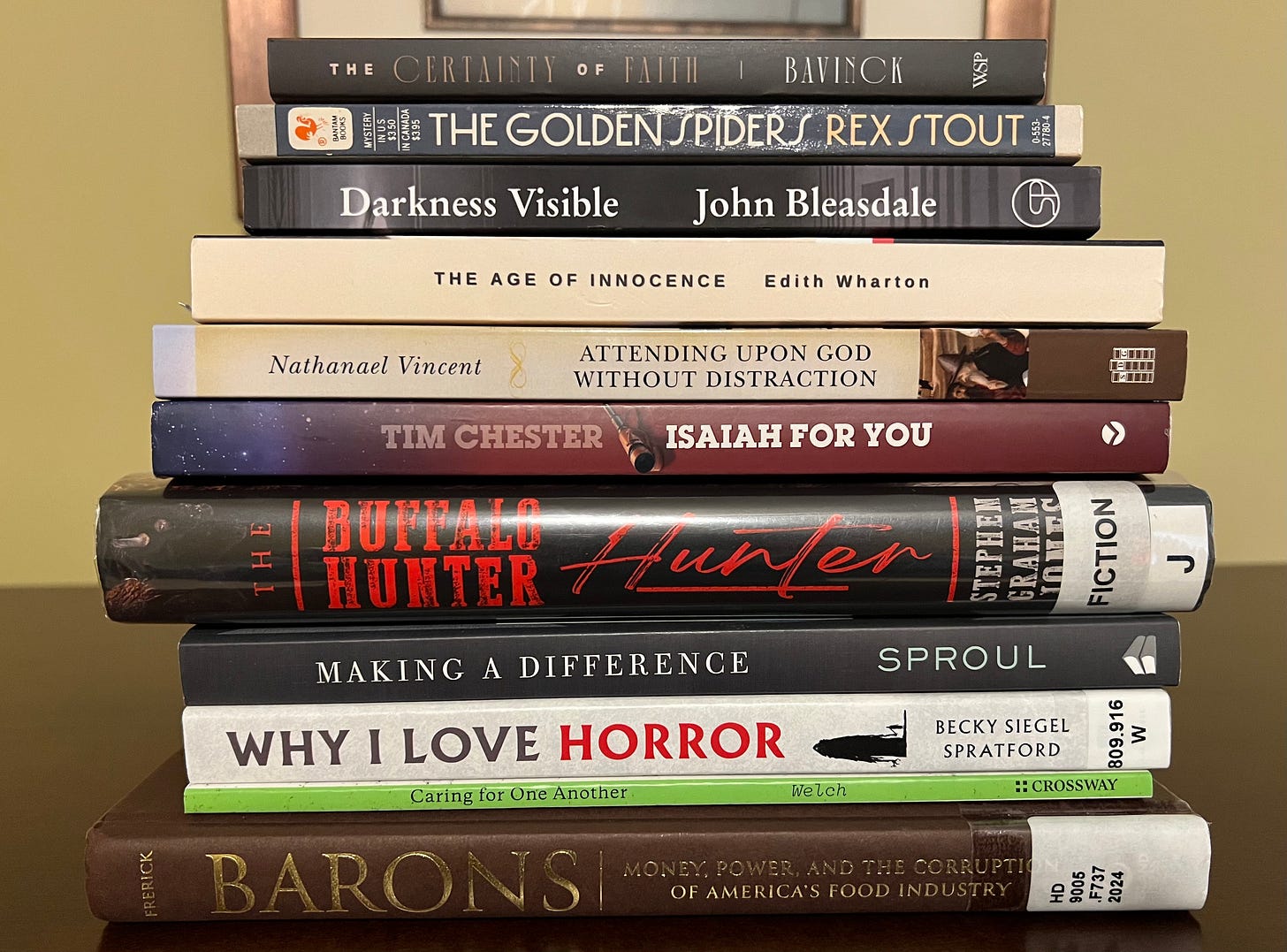
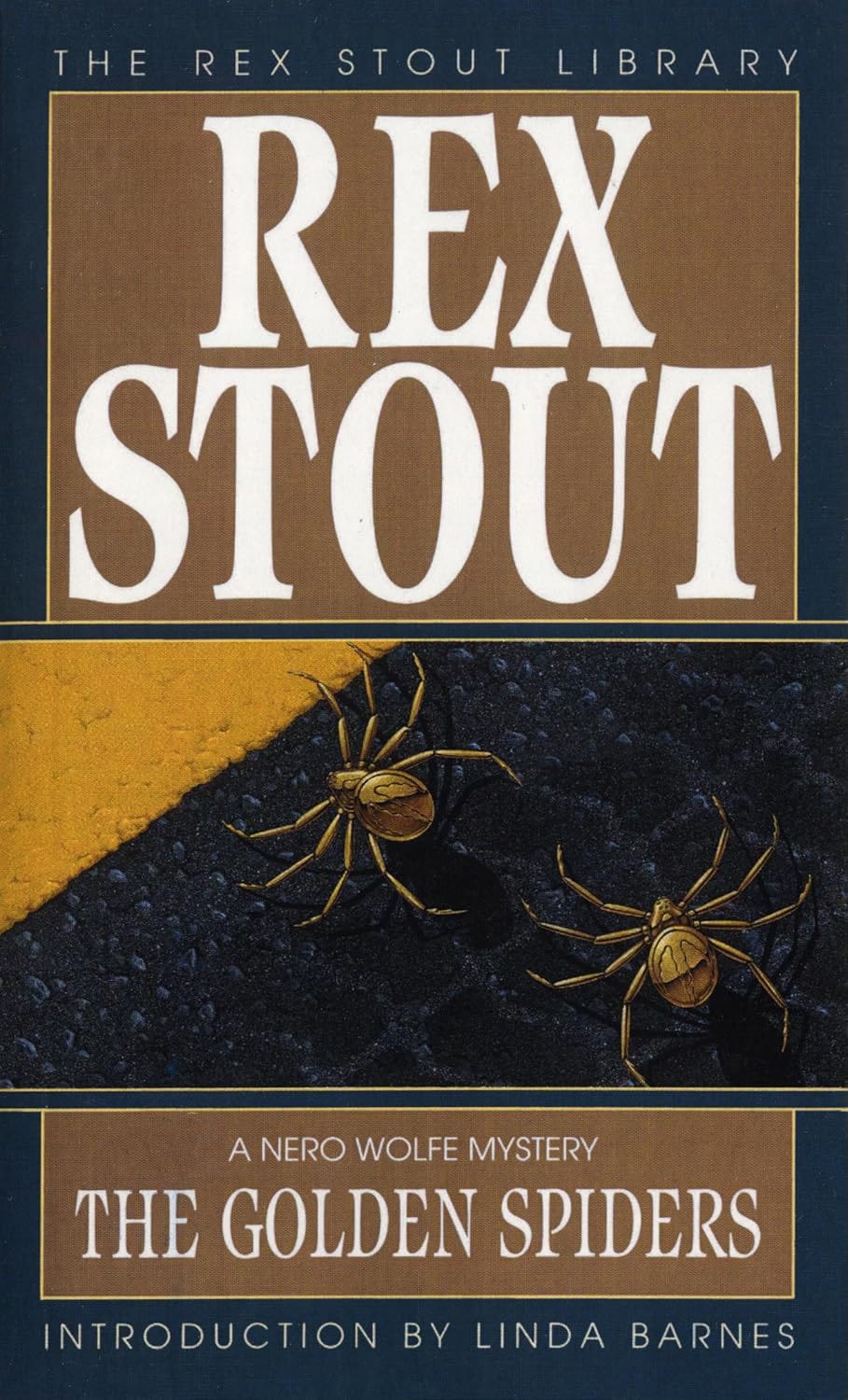
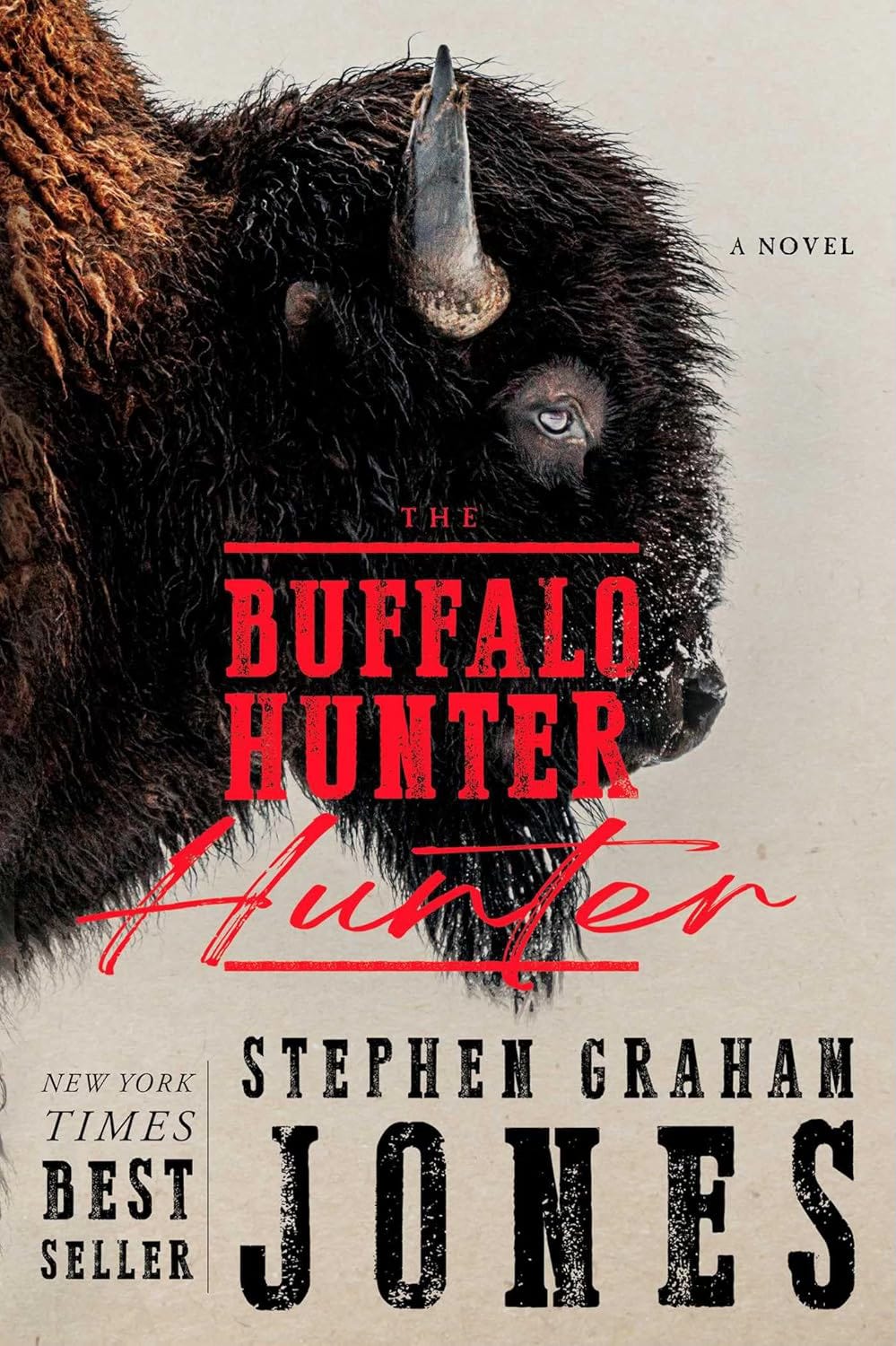
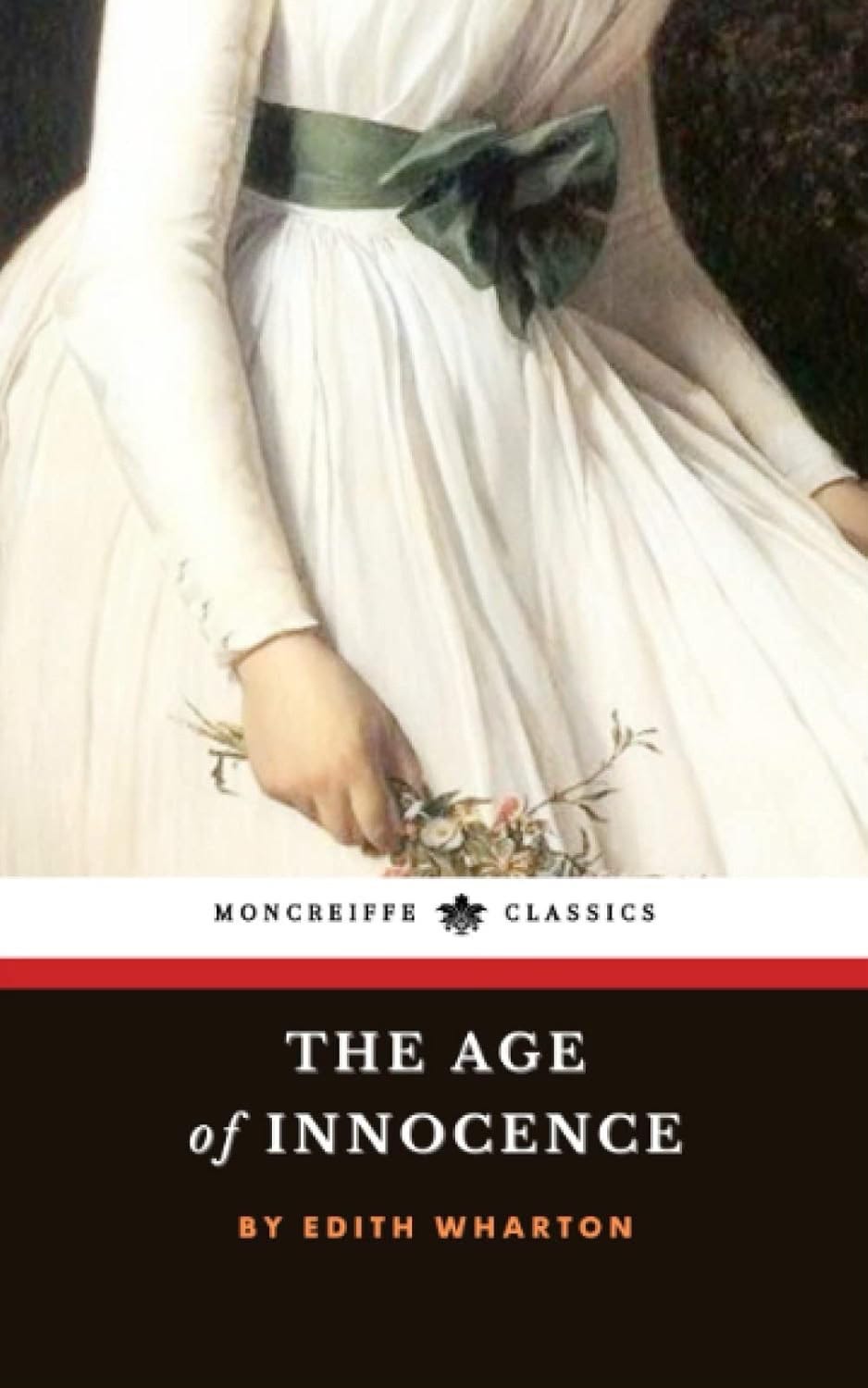
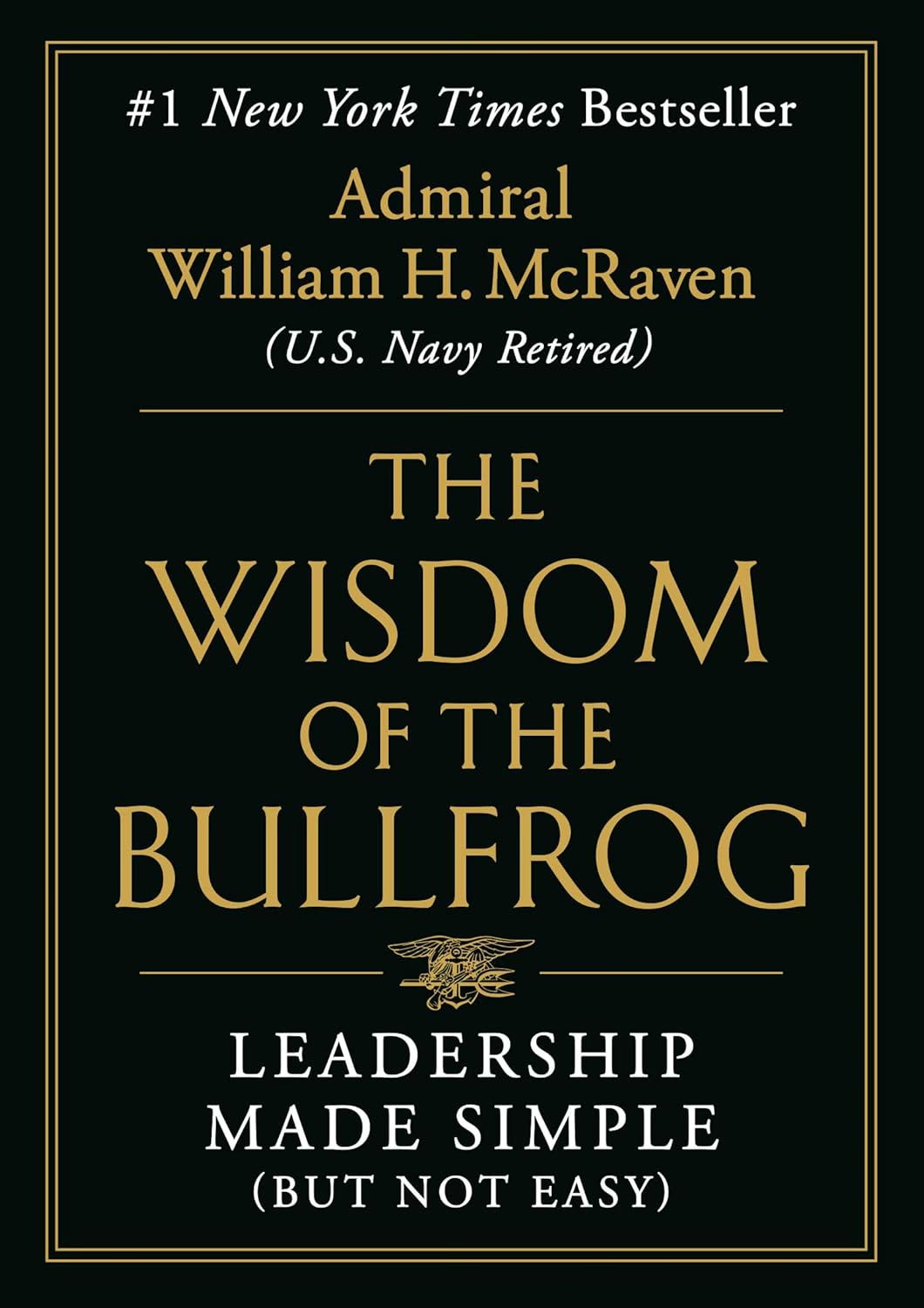
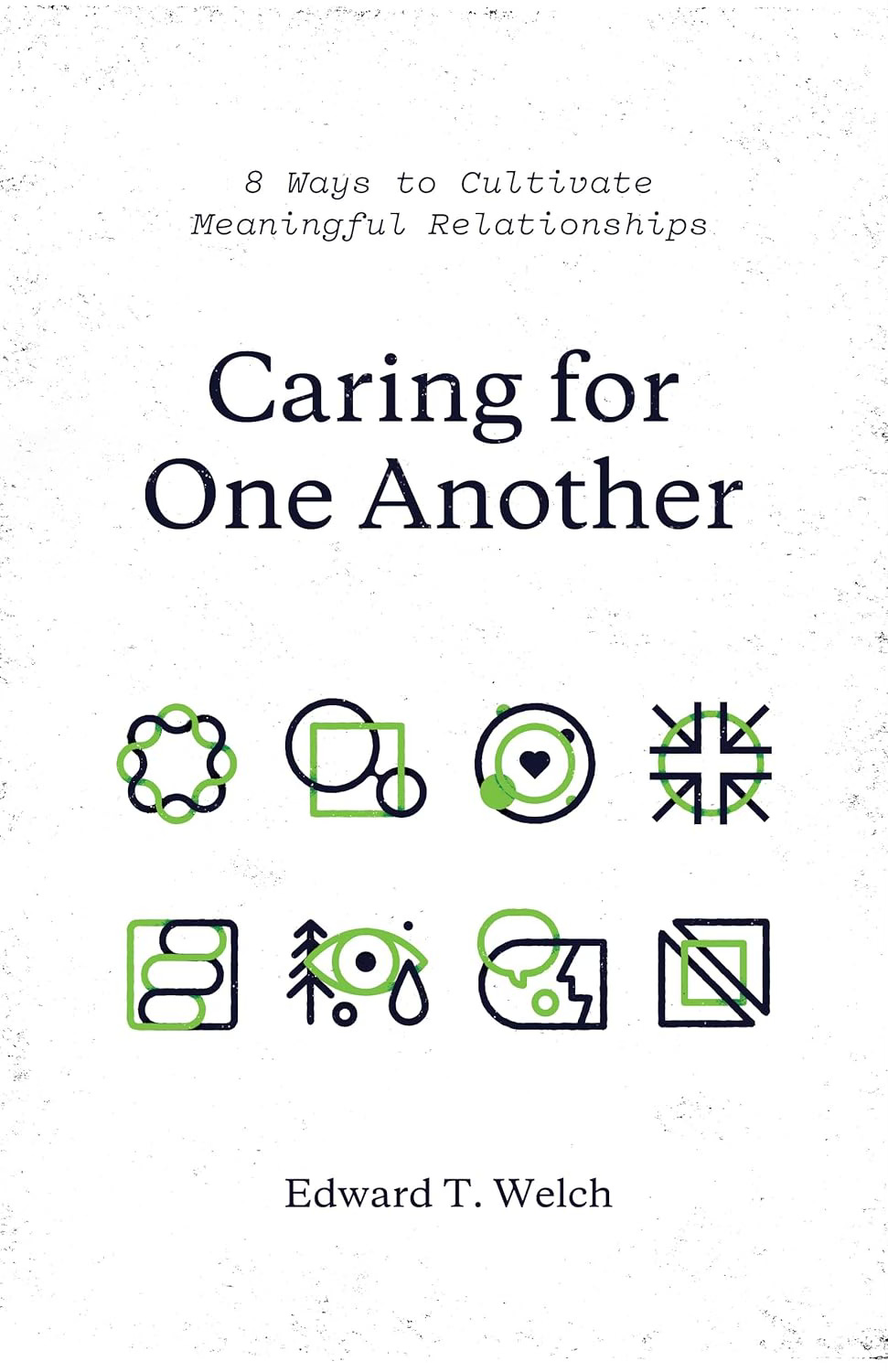
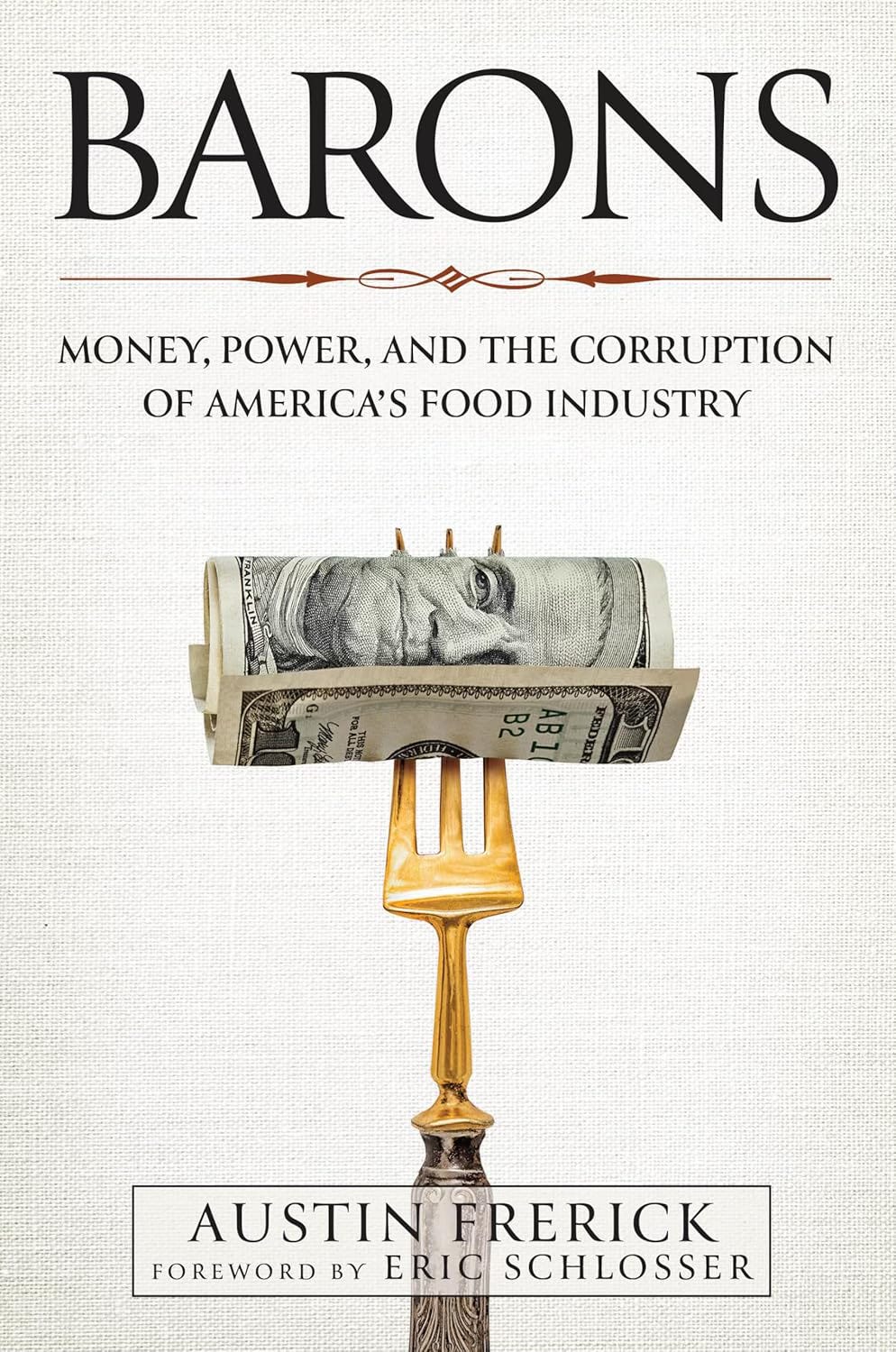
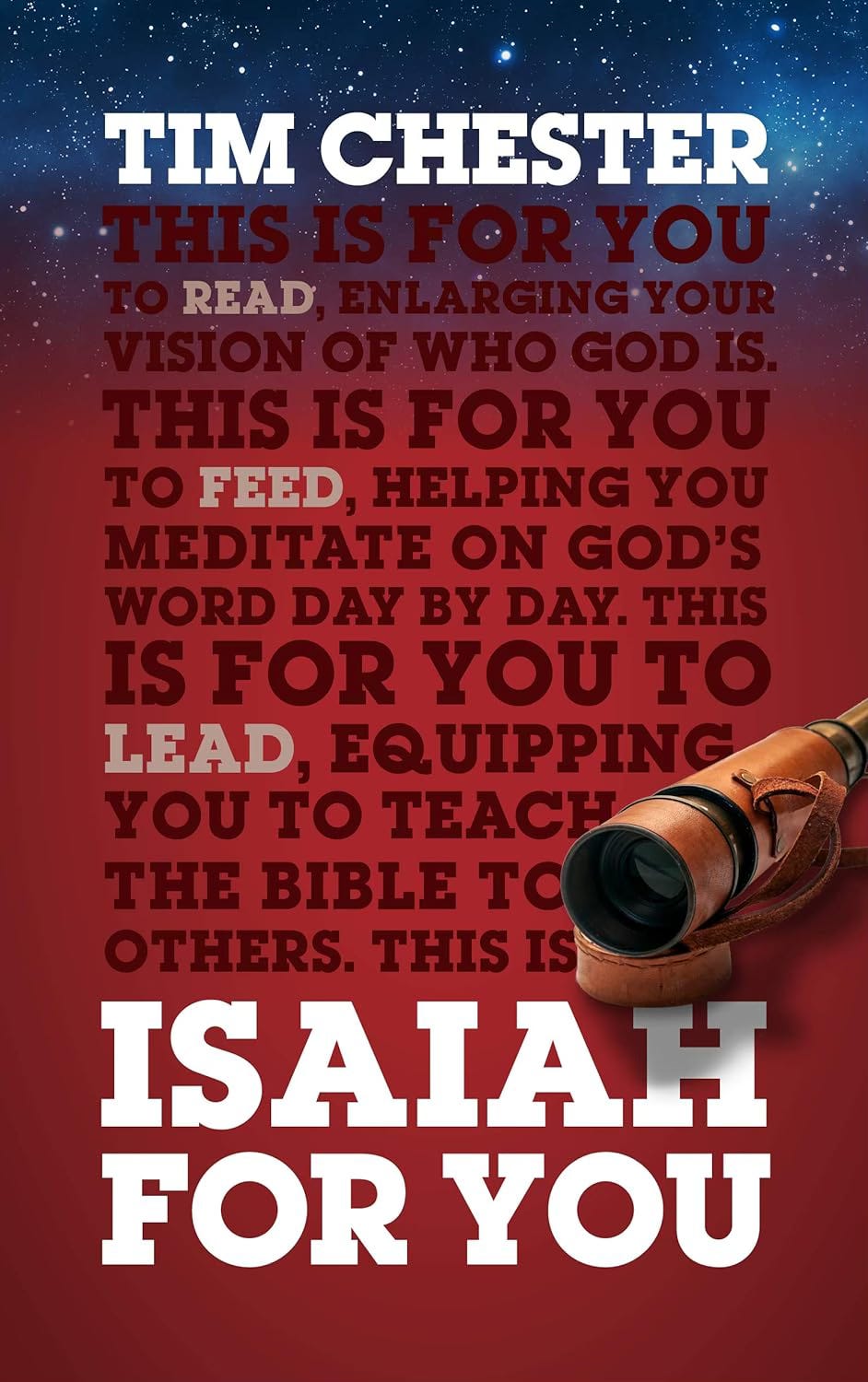
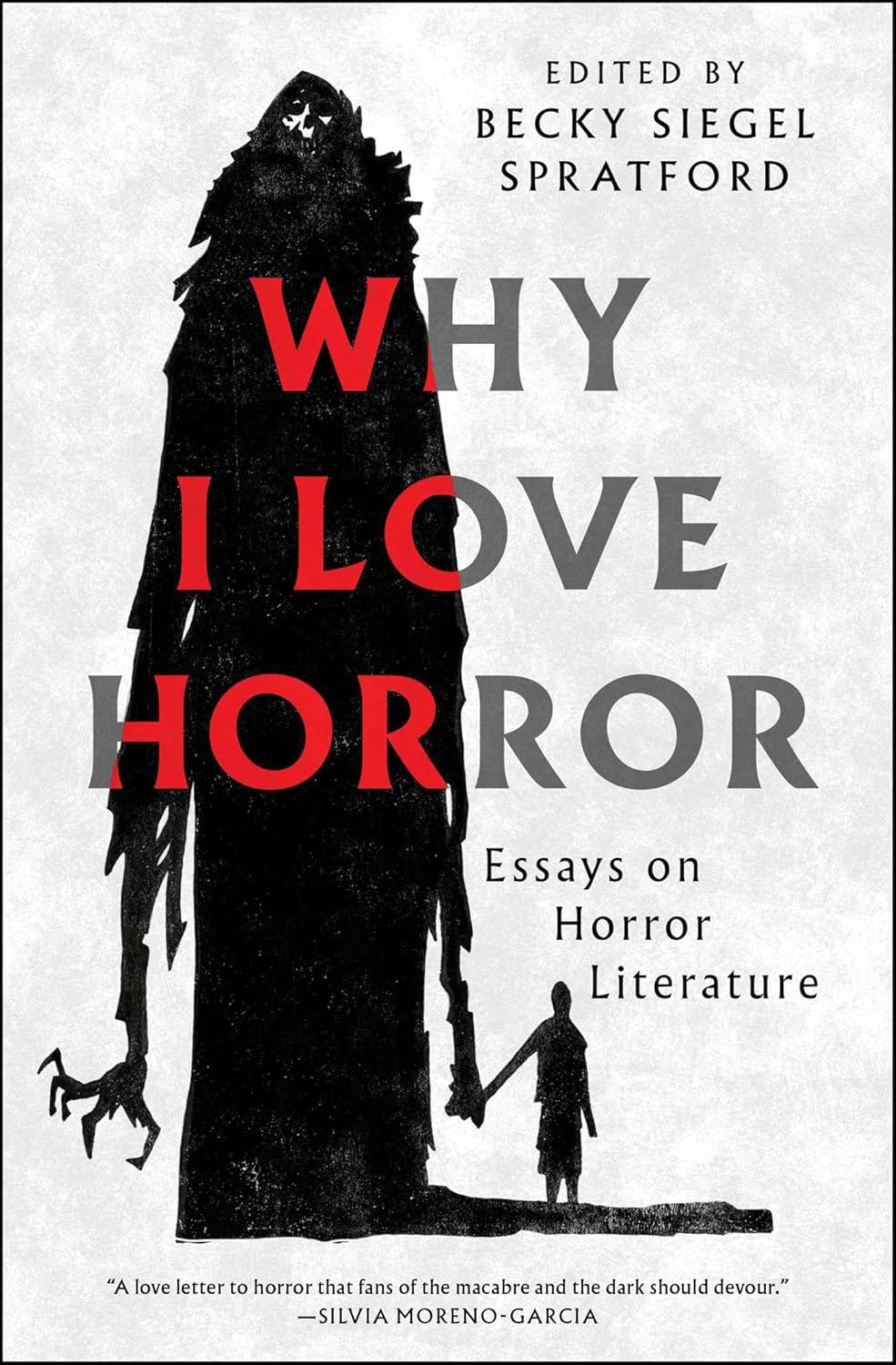
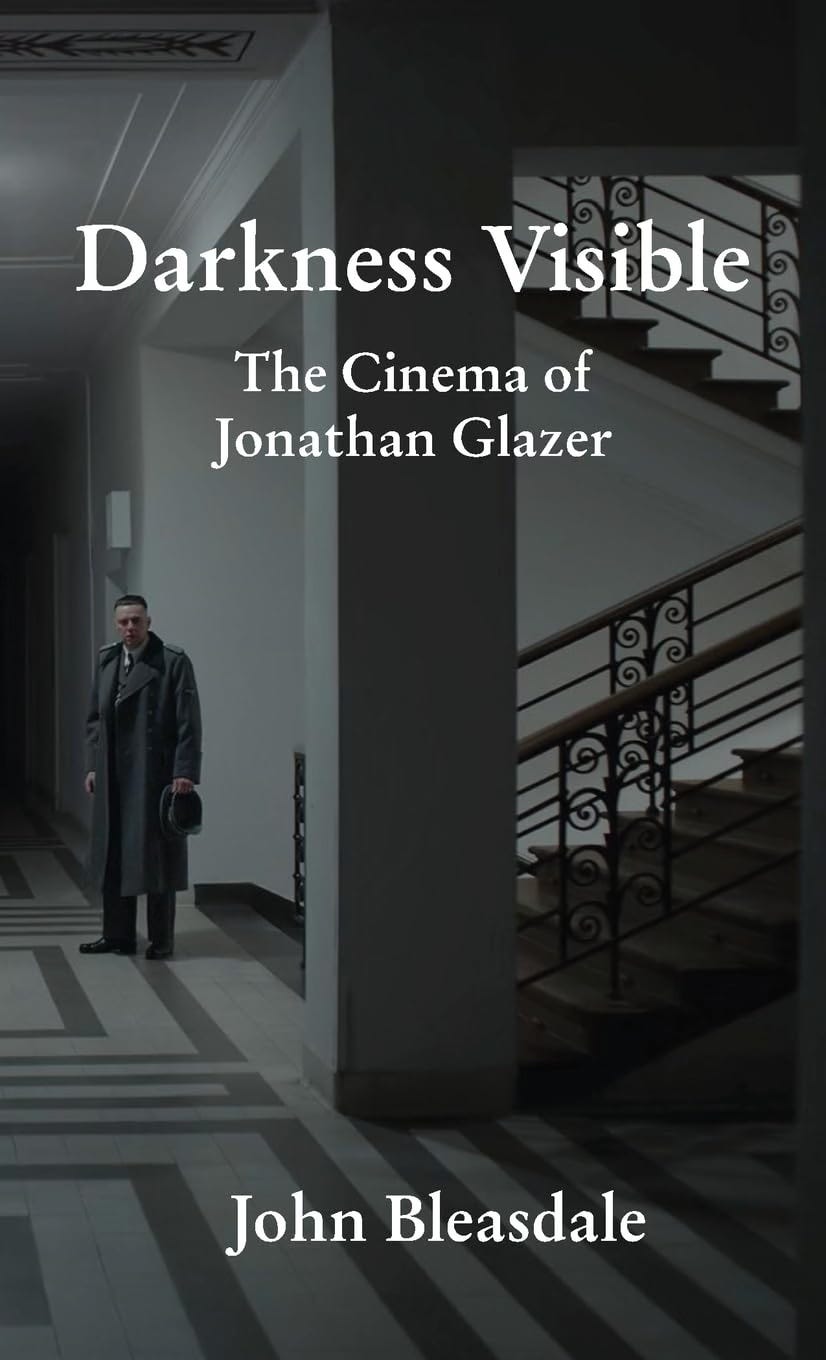
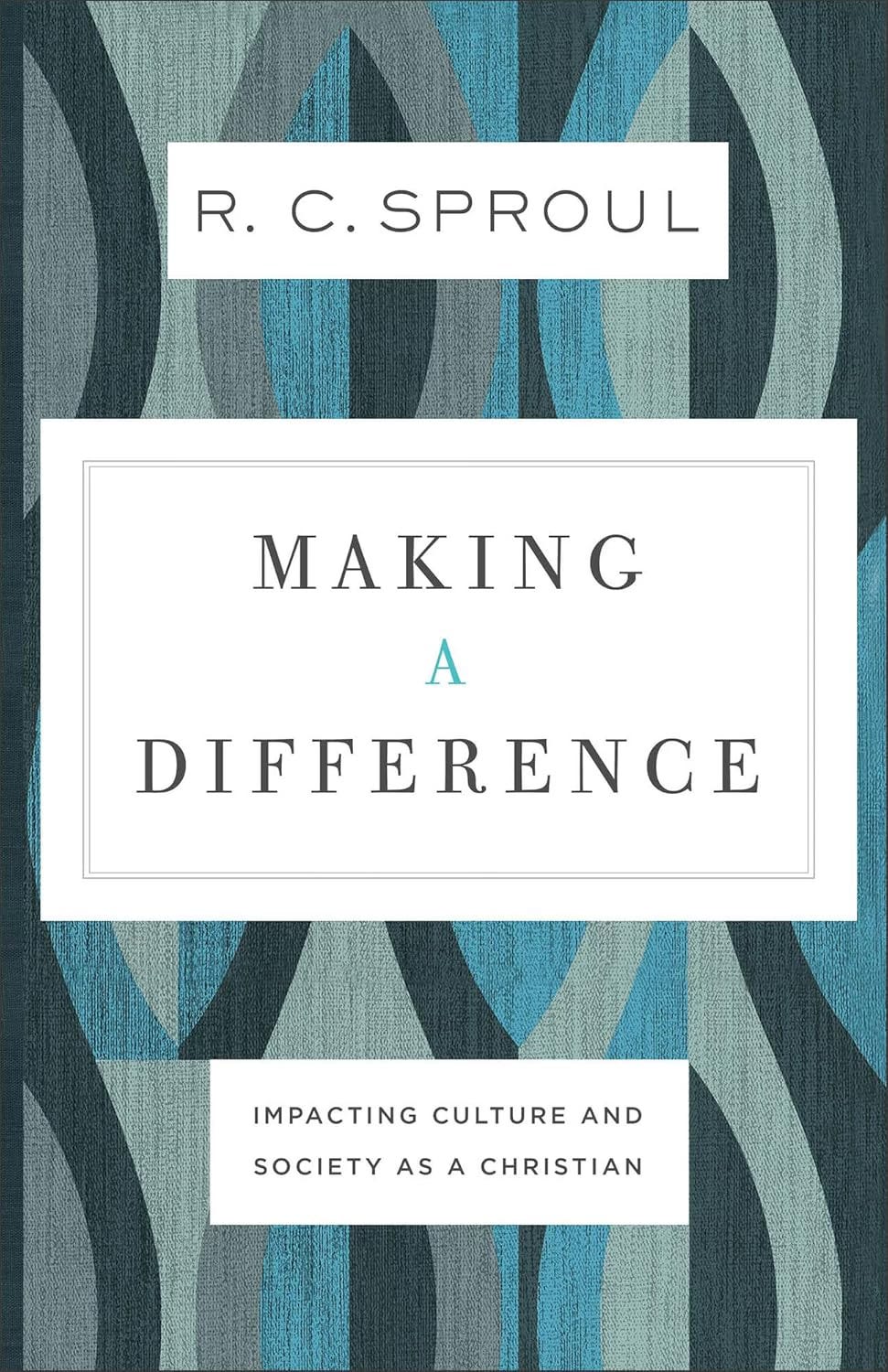
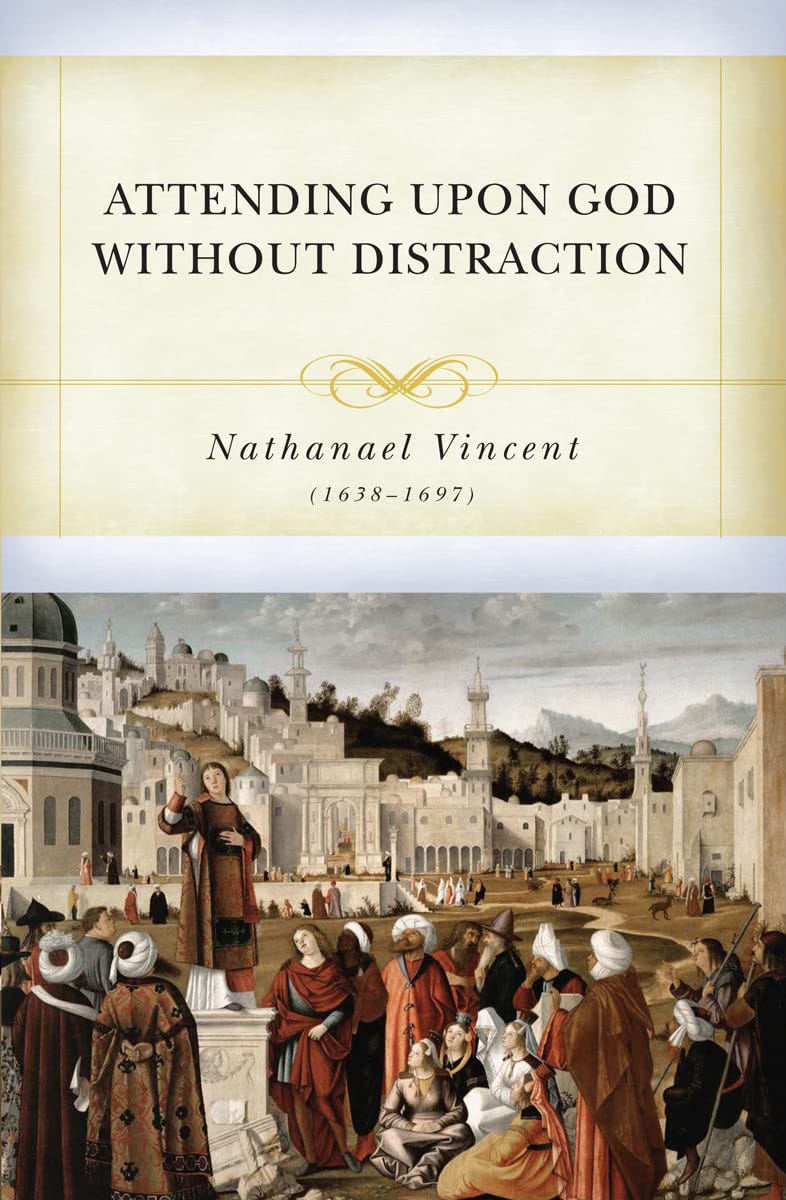
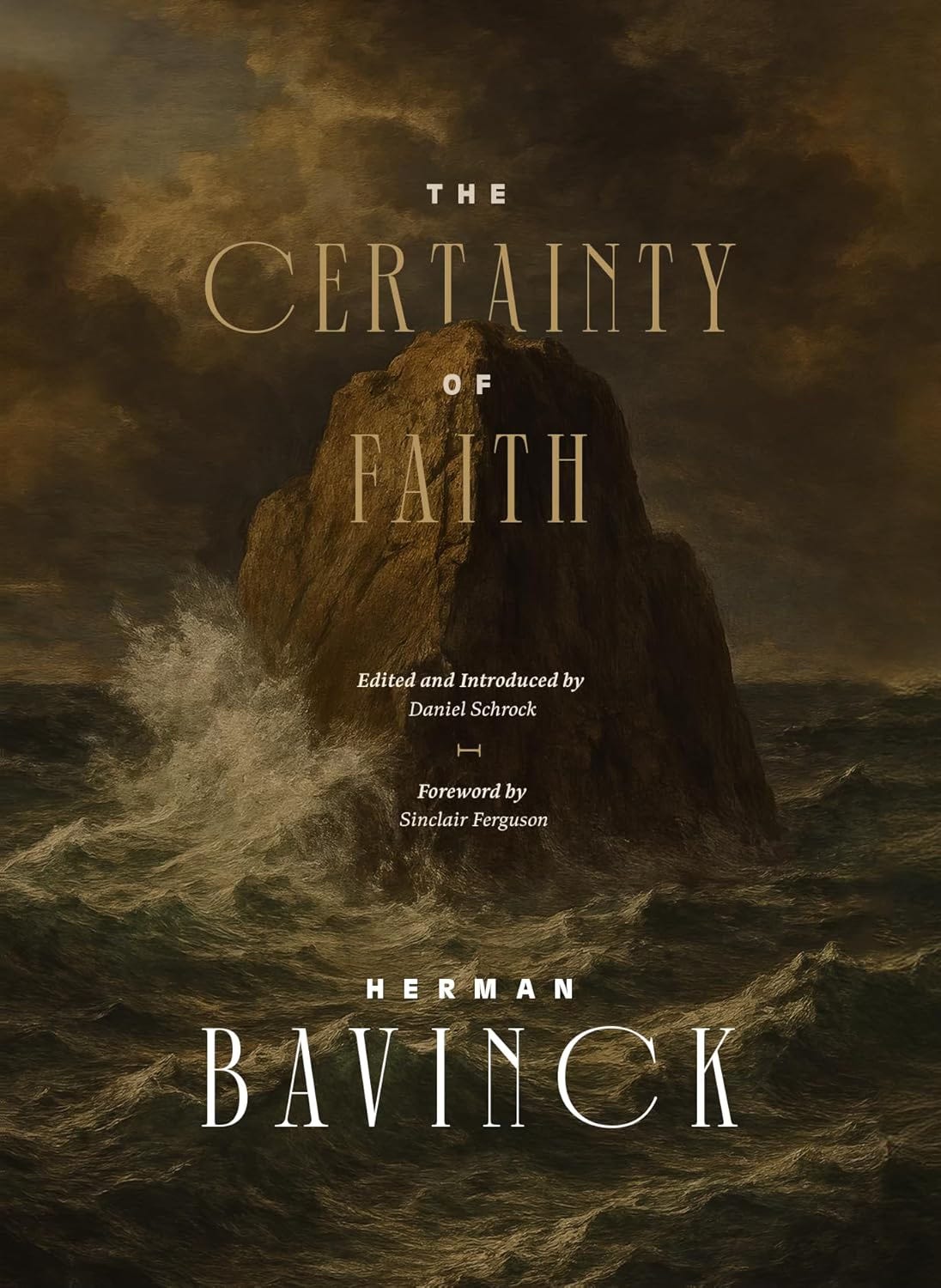
I read The Secret History and now I’m reading The Penelopiad!
What I Read In October
Nice variety of works you read this time, Andy. Someday I’ll get to Rex Stout. By Wharton, I read Ethan Frome in June of last year – tense! Isaiah is a rich book, full of history, symbolism, and prophecy. I don’t discourage commentaries or other books examining it, but the Holy Spirit is the one who can open your eyes to all of its facets, in His time. The horror essays look promising – any less-than-contemporary writers represented? I see Moreno-Garcia’s blurb on the cover. She was the Guest of Honor at the last Balticon. I got her to autograph Mexican Gothic, but the book of hers I read was The Daughter of Doctor Moreau, which I enjoyed.
I think your Sproul book is worth a look. Although the book may be dated, the foundational ideas remain timeless; morality doesn’t really change with the times, despite modern thinking. Perhaps with a read, the topics can be extrapolated to account for contemporary trends. I might look into the Bavinck book. I came to faith through an intellectual decision, where my faith grew gradually rather than through an instant, born-again change in character and demeanor. So, having never been earthly-sure, and never receiving clear and ecstatic communication through the Holy Spirit (only subtle hints and conscience nudges), it’s easy to wonder if I could prove I’m saved. Do you think Bavinck can shine any useful light in my direction?
The books I finished in October were:
Watership Down, by Richard Adams. I’d wanted to read this for years because I wondered why it was so popular when released. (The first printing was actually quite small, but when it was “discovered” a year later, it flooded the market). The story engaged me. The audiobook was read by Ralph Cosham, who narrated the two C. S. Lewis audiobooks I read, so I couldn’t help comparing the story to Narnia, with its reasoning animals. The characters were well-rounded and vivid, and caused quite a bit of stress during the story! (That’s a good thing.) I don't think I missed any subtext because in the introduction, the author said he wrote an adventure story for his kids. But reviewers and analysts can read all sorts of stuff into fiction that the author never intended. (Go for it!)
The Fall of Hyperion, by Dan Simmons. I finally read the sequel to Hyperion, and in between I had read The Canterbury Tales, a structural source for the Simmons books. The main character is based on the engrams of John Keats; his poem “Endymion” is integral to the story. Canterbury didn’t really shed any light on Simmons’ work for me; simply a structure thing. The Keats poem is like the Mississippi River – really long and of uncertain depth. I did not get to the end of the poem. I should do so, to get a little more fulfilment out of The Fall of Hyperion. The next book in the series is called Endymion. TFoH had great characters, a suspenseful story, and a wild ending risking the entire known galaxy. I still don’t get the Shrike, though. It’s not a religious icon I would be drawn to. It seems to be used for personal gain. The legend says that if a group of people approaches it, the Shrike will grant the wish of one of the group and kill the rest. I don’t like the odds. Even if the group comprises only two.
I don’t know how I got Twilight, by Stephanie Meyer, on my reading list; perhaps someone whose views I respected mentioned it. SPOILER ALERT! The first half is all teen romance stuff. It doesn’t get good until the second half. Nice, suspenseful, and action-filled ending with twists. I can see how it launched a new subgenre of teen vampire and teen-wolf stories. I’m reading one of those free bookpacks on Kindle with 13 books in it (The Paranormal 13), and so far, they all have that Twilight feel, though not written as well. That which is at first original can soon become blase.
The Light Fantastic, by Terry Pratchett. If you love Douglas Adams, you’ll love his literary stepson, Terry Pratchett. Same brand of zany, punny wit, but worked perfectly into the story, with a dramatic plot, characters you like, dislike, and loathe, wizards, and even a dimensionally transcendental walking suitcase. The book title itself is a pun. I found it very funny and dramatic – another end-of-the-world threat, but on Discworld, it’s different.
On October 31, I finished the audiobook version of Journey to the Center of the Earth by Jules Verne. I had read it in Junior High School or thereabouts and didn’t think much of it. Verne is a bit difficult for youngsters; 20,000 Leagues Under the Sea was a chore at the time. But since my random-book-choosing method selected “Verne,” and I was choosing an audiobook, and the first available book that came up was JttCofE, I selected that. And it’s been so long that I didn’t remember anything from the book. One thing I certainly missed as a child was the humor portrayed by the woe-is-me main character, the nephew. So the story was fairly amusing. And although science fiction, verisimilitude was lost for me in the character of monosyllabic Hans, who had almost no function except as a hired laborer and lifesaver. Well, maybe lifesaving is important. But in the real world, at some point, he would have said (in Icelandic), "I'm outta here!" Disappointingly, it seems that the adventure is just beginning when it ends. I am also skeptical that the scientific community would have been as overawed as in the book for a journey with so few results. Listening to an audiobook is an experience different than reading a book, and it is worth it. Since I listen while commuting, it doesn’t seem a waste of time, though a part of me thinks, “There are too many books in the world to read one twice!”
So that’s October. Currently reading Tribulation Force, by LaHaye and Jenkins; Universe 7, edited by Terry Carr; and Let Me Tell You: New Stories, Essays and Other Writings, by Shirley Jackson.